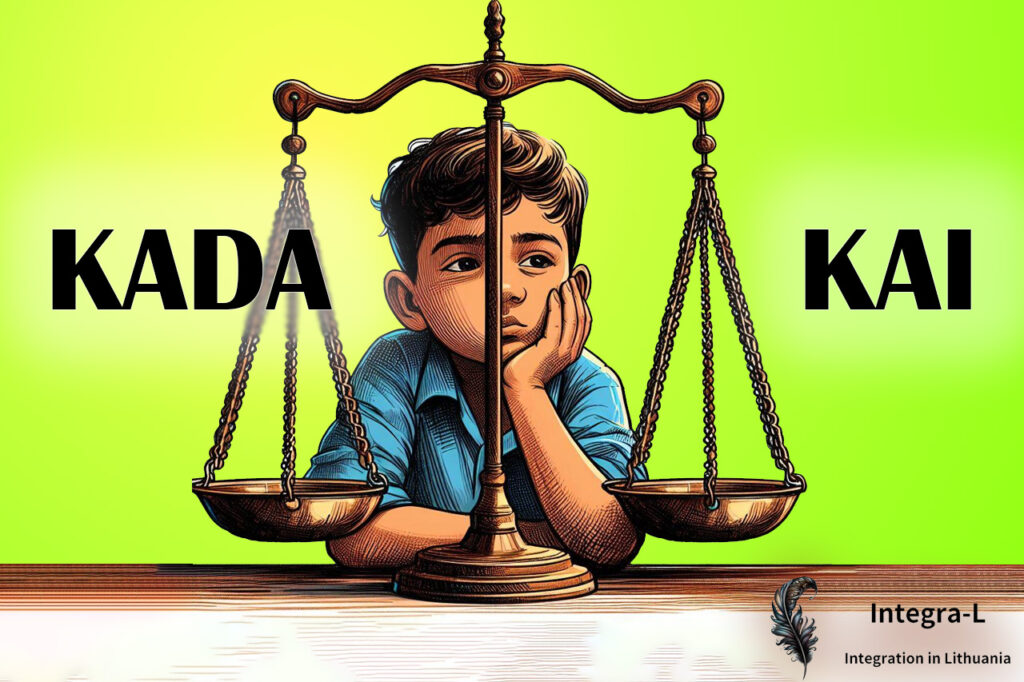Lithuanian language is the official language of the Republic of Lithuania and one of the official languages of the European Union. It is spoken more 3 million people. Lithuanian is one of the most archaic languages, that's why it's so difficult to learn.
Why do you need to learn Lithuanian?
- communication in Lithuania
- work (Some qualifications require a very high level of proficiency)
- obtaining permanent residence (I need category I)
- obtaining citizenship (I need category I)
Lithuanian language categories:
- I category
- Level A2. A person is able to understand short, clearly structured oral and written texts and frequently used expressions, general themes of everyday life. Can speak on specific familiar topics, fill out standard documents, write informal short texts (For example, advertisements, letters), use simple vocabulary. Can speak in simple language about his education, immediate environment and basic needs. He is also able to understand spoken and written text and use minimal terminology, work related;
- The first category refers to service sector workers, production, trade, transport and other industries, where they have to interact with people and/or fill out standard forms (drivers, cloakroom attendants, waiters, salespeople and other sales workers, other employees, performing economic or technical functions, etc.).
- II category
- Level B1. Man understands long, complex oral and written texts on concrete and abstract topics, as well as specialized discussions on professional topics. Can speak fluently on various topics, explain your views and opinions on the issues under consideration, outline the advantages and disadvantages of various options, draft and process official documents, express thoughts clearly and correctly in writing. Create clear, detailed texts on various topics, explain your views and opinions on the issues under consideration, outline the advantages and disadvantages of various options;
- The second category includes education workers, cultures, health, social security and other areas, civil servants and civil servants, who need to have at least a higher education, after secondary, received before 2009 year, or secondary special, received before 1995 year, if their work requires them to regularly communicate with people and/or fill out standard forms of documents (with the exception of teachers, leading teaching in the state language).
- III category - level B2 and above.
- The third category of official language proficiency applies to heads of state and municipal institutions, organs, enterprises and organizations, civil servants and officials, for which higher education or its equivalent is required, teachers, teaching in the official language, aviation specialists, flight safety (air traffic controllers and flight crews), specialists in maritime and inland water transport, responsible for the transportation of goods or passengers and luggage (ship captains, transporting passengers and/or cargo to/from seaports (ports) Republic of Lithuania, or at least one of the mates of the captain of such a vessel, harbor captains, pilot) etc..
Purpose of the section
Support those, who started learning the Lithuanian language, and offer alternative presentation of material and approaches to memorization.
Lithuanian language exam without residence permit, is it possible?
Obtaining permanent residence and citizenship are some of the main reasons to take....
ReadReflexive verbs (Reflexive verbs)
Reflexive verb - verb, which indicates that, what an action....
ReadEndings of nouns and adjectives
Nouns and adjectives have the same endings. For example, good house...
ReadKAI arba KADA - what's the difference?
Everyone is familiar with the word KADA as an interrogative, but in meaning “When”...
ReadAccusative case (The rear guard)
The accusative case is one of the most used. Most verbs require....
ReadLithuanian or Lithuanian?
Known, that from changing the form of a noun the form of a possessive adjective does not....
Read- 1
- 2









